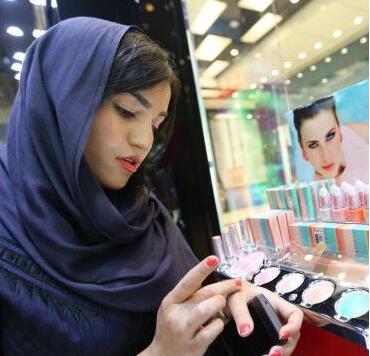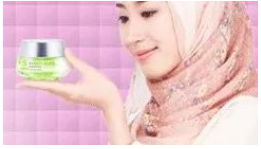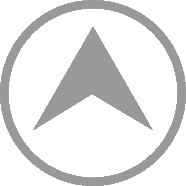By Syamala Ariyanchira – acubiz.com.my
While numerous traditional markets all over the world are quickly getting saturated, the Muslim community is developing some fast-growing consumer products and segments globally. One of these most promising segments under development is the Halal Cosmetics industry. This segment is offering a key growth opportunity for personal care and cosmetics companies.
The term ‘Halal’ typically refers to actions or things that are consented by the Muslim Shariah law. Halal cosmetics are described as skin and body care products that do not use materials/ingredients banned in the Muslim society.
The manufacturing of Halal cosmetics is seen as a sort of innovation in the skincare and cosmetics industry. It has introduced new technologies as well as internal and external methods in the areas of R&D, formulation, and production. The overall scope of halal compliance is much higher though, as it covers all aspects of manufacturing, starting from the sourcing of materials to production, transport, cargo management, warehousing, and retail.
The ‘Halal’ concept is increasingly becoming sophisticated. Ten years ago, the awareness about Halal was quite limited and was mainly focused on meat-based products. Today, it is concerned with a broader range of consumer products and concepts.
Increased consumer awareness but lack of standardization
There is a noticeable increase in the levels of consumer consciousness with regards to the use of ingredients in skincare and cosmetics products. This has resulted in an increase in the demand for Halal cosmetics too.
Consumers are increasingly willing to pay a higher price for such goods because their ethical beliefs are given due consideration. This change in consumer approach has encouraged the traditional beauty market to focus on creating products which are halal-certified. Today, a visit to super market for halal compliant personal care products can offer a range of items including shampoos, soaps, shower gels, conditioners, lotions, toners, cleansers, creams, perfumes, makeup, toothpaste, and powders.
One of the major factors that are driving this change is the increasing percentage of the Muslim population acquiring higher levels of education, which has resulted in a shift towards spending on high-quality and safe products. Muslim consumers have progressed to seek halal integrity in pharmaceuticals, processed beverages and foods, insurance, leather products, entertainment, and travel. A large section of the Islamic population is slowly finding a place for various cultural and religious aspects in their daily lifestyle.
In general, the millennials are showing an increased preference for natural, organic, and vegan products. Halal cosmetics and skincare products are perceived to be safer by all consumers – both Muslim and non-Muslim – because of the nature of the process and raw materials used in manufacturing and the strict certification guidelines. This has been another major factor driving the growth of the global halal cosmetics industry.
Halal certification allows Muslims to identify genuine halal products and thereby live according to their religious virtues. However, the rules relating to the halal ingredient authenticity vary from country to country. This factor may restrict some companies to enter the global halal cosmetics market. It is difficult for cosmetic manufacturers to get a legitimate halal certification, acceptable across all Muslim-dominant nations. The lack of standardized global guidelines for manufacturing halal cosmetics is a challenge for companies interested in tapping this emerging market opportunity.
Market Potentials, Worldwide
Globally, the demand for halal cosmetics at present is estimated to be around $20 billion. The market is growing fast, as halal products are swiftly making their way into the mainstream consumer markets. APAC region seems to be a fast growing market for halal cosmetics, accounting for almost 75% of the demand. Countries with large Muslim population such as Malaysia, Indonesia, India, Bangladesh, and Pakistan are expected to have a high demand for halal cosmetics as their socioeconomic conditions of are improving considerably.
Malaysia has been investing significantly in various emerging halal product segments, targeting to evolve as the global hub for halal industries including halal cosmetics. Jabatan Kemajuan Islam Malaysia or JAKIM has received worldwide recognition as a credible halal certification agency. The Middle East is another important natural market considering the high-income levels of the countries in the region.
More companies are investing in the development of halal-compliant cosmetics, including MNCs. For instance, Colgate Palmolive has added halal toothpaste to their product portfolio. Several small and medium companies in APAC region are also emerging as key players in halal cosmetics markets.


马来西亚:清真化妆品的新兴市场
Syamala Ariyanchira——acubiz.com
在世界各地许多传统市场都在快速饱和的情况下,穆斯林社区正在全球范围内分领域发展一些快速增长的消费品。其中最具有发展前景的领域之一是清真化妆品行业。这一市场为个人护理和化妆品公司提供了一个关键的增长机会。
“清真”一词通常是指行为或事情符合伊斯兰教法。清真化妆品被描述为皮肤和身体的护理产品,不使用穆斯林社会禁止的材料或成分。
清真化妆品的生产被视为护肤品和化妆品行业的一种创新。在研发、配方和生产领域,引进了新技术以及内外部方法。清真合规的整体范围要高得多,因为它涵盖了制造业的方方面面,从原材料的采购到生产、运输、货物管理、仓储和零售等。
“清真”的概念越来越复杂。十年前,人们对清真的认识非常有限,主要集中在肉类产品上。而今天,它关注的是更广泛的消费产品和概念。
增加消费意识,但缺乏标准化
在护肤品和化妆品的产品成分方面,消费者的消费意识显著提高。这也导致了对清真化妆品的需求增加。
越来越多的消费者愿意为这样的产品支付更高的价格,因为他们的信仰获得了充分地考虑。这种消费方式的改变,鼓励了传统的美容市场集中精力研发清真认证的新产品。今天,超市可以提供一系列的符合清真标准的个人护理产品,包括洗发水、肥皂、沐浴露、护发素、乳液、爽肤水、洗面奶、面霜、香水、化妆品、牙膏和粉等。
推动这种变化的一个主要因素是,穆斯林人口在接受高等教育方面的比例越来越高,这导致了向高质量和安全产品的支出转变。穆斯林消费者在制药、饮料、食品、保险、皮革产品、娱乐和旅游等方面,追求清真的完整性。伊斯兰人口中的很大一部分正慢慢在他们的日常生活中,为不同的文化和宗教寻觅一方净土。
一般来说,千禧一代对天然、有机和纯素产品的偏好越来越高。清真化妆品和护肤品被所有的消费者认为是更安全的产品——包括穆斯林和非穆斯林——因为加工过程和生产中使用的原材料都是天然的,并有严格的认证指南。这是推动全球清真化妆品行业发展的另一个重要因素。
清真认证使穆斯林得以识别真正的清真产品,从而按照他们的宗教美德来生活。然而,有关清真原料可靠性的规定因国家而异。这个因素可能会限制一些企业进入全球清真化妆品市场。对化妆品生产商而言,获得一个合法的清真认证,并在所有穆斯林占主导地位的国家都被接受,是很困难的。对有兴趣抓住这一新兴市场机遇的公司而言,清真化妆品的生产缺乏标准化地全球指南是一个挑战。
全球市场潜力
在全球范围内,目前对清真化妆品的需求估计约为200亿美元。市场增长迅速,清真产品正迅速进入主流消费市场。亚太地区的清真化妆品市场似乎是一个快速增长的市场,占到需求的75%。穆斯林人口众多的国家,例如马来西亚、印尼、印度、孟加拉国和巴基斯坦,随着社会经济状况的改善,预计人们对清真化妆品的需求将会很高。
马来西亚一直在大力投资各种新兴的清真产品,目标是成为包括清真化妆品在内的,全球清真产业的中心。Jabatan Kemajuan Islam Malaysia或JAKIM作为一个可靠的认证机构,已经获得了全世界的认可。考虑到该地区各国的高收入水平,中东是另一个重要的自然市场。
越来越多的公司开始投资于符合清真要求的化妆品的开发,包括跨国公司。例如,高露洁-棕榄在他们的产品系列中增加了清真牙膏。亚太地区的一些中小企业也正在成为清真化妆品市场的主要参与者。








